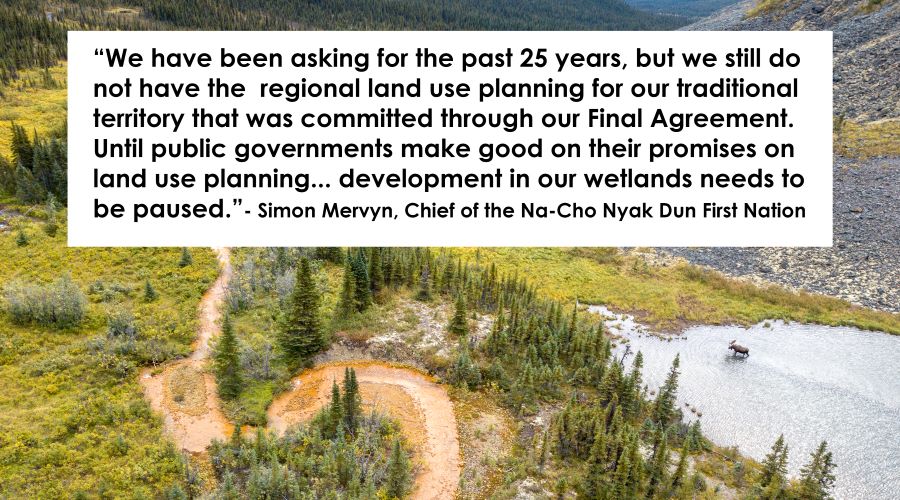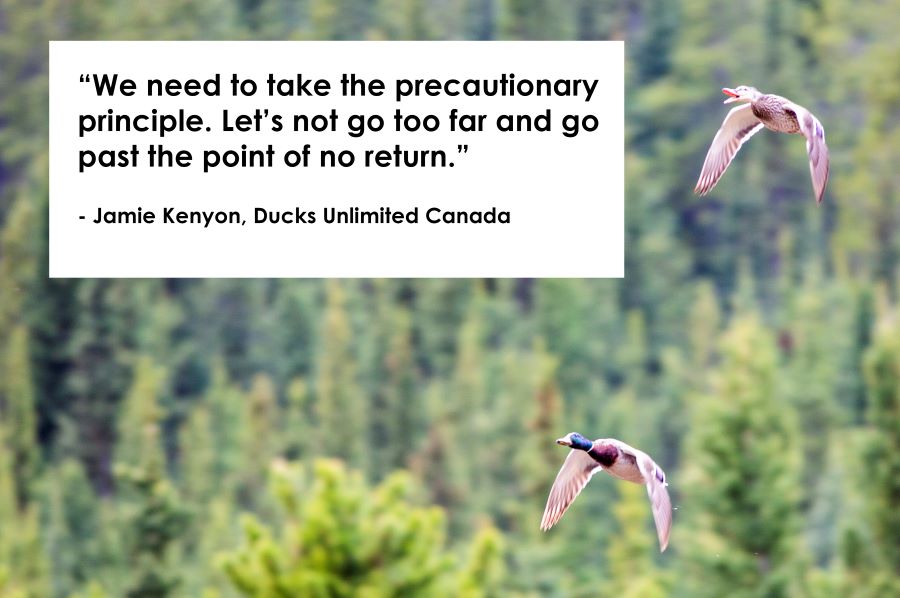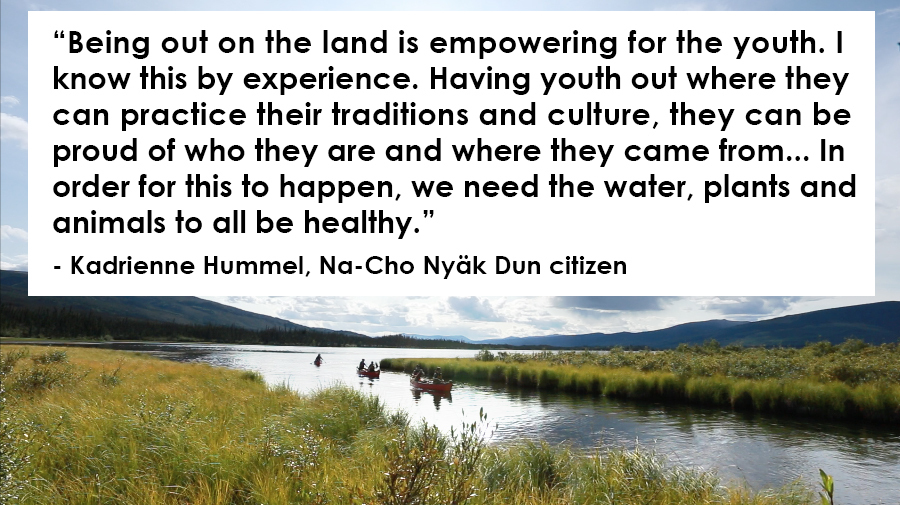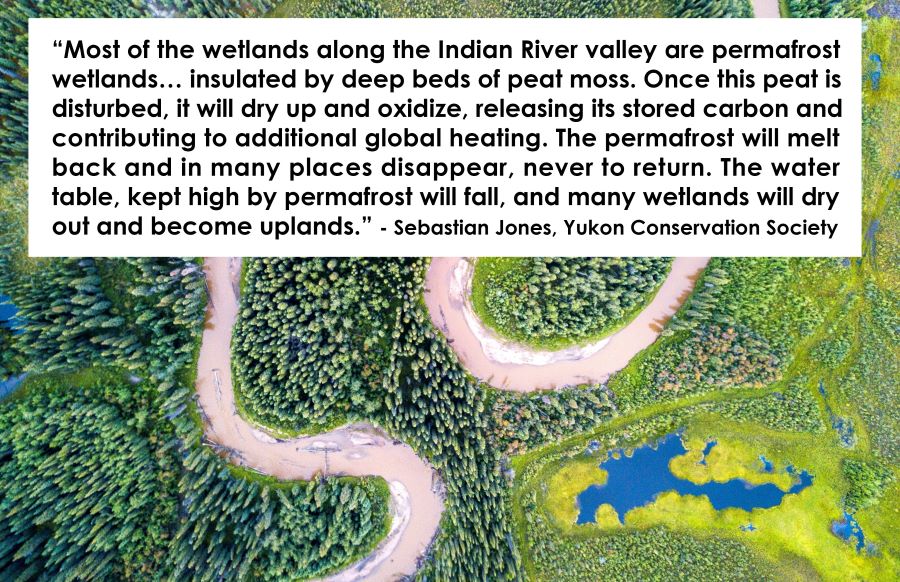Yukon Government should listen to chorus of voices calling for a pause on placer mining in wetlands.
Header Images: Testimonies from Yukon Water Board hearings between Oct 27-29, 2020
Written by Malkolm Boothroyd, Campaigns Coordinator, and Randi Newton, Conservation Manager
Huge stretches along the Indian River resemble a moonscape. Salmon once ran up the river but it is now murky with sediments. There’s gold beneath these wetlands, and because of that much of the river will never look the same again. Now the Yukon is grappling with the future of placer mining in wetlands, in the Indian River and beyond.
Many of the wetlands being lost to placer mining are peatlands: old growth ecosystems that take thousands of years to form. Restoring mined peatlands is impossible; the best we can manage is conversion to open water ponds and marshes, tucked between newly formed hills of tailings. Once intact landscapes become a checkerboard of disturbance. This disturbance transforms how water flows, what animals can inhabit these ecosystems, and how much carbon the landscape can sequester. It also transforms how people use and relate to the land and water.
Watersheds like the Indian River are especially at risk. Mining claims overlap nearly all of the watershed’s unmined wetlands. Because of the scale of damage, the Yukon Environmental and Socio-Economic Assessment Board (YESAB) and the Water Board have repeatedly said no to further mining in the watershed’s undisturbed wetlands. Everytime, Yukon Government has overruled them.
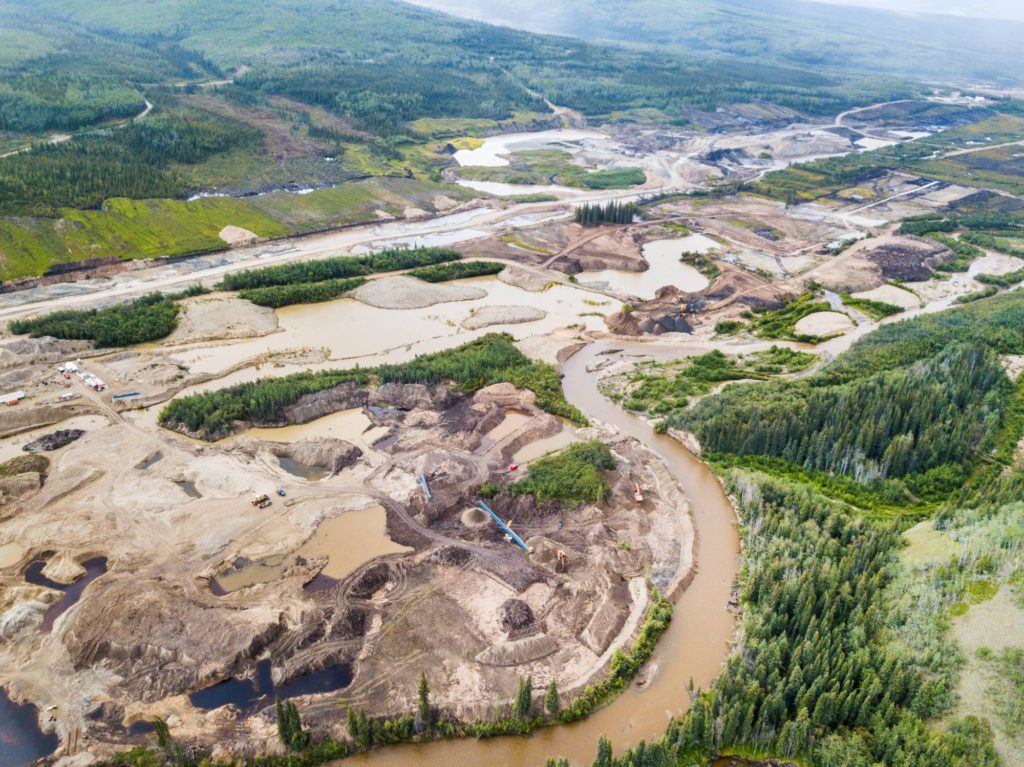
Yukon Government’s approach is allowing placer mines to eat away at the landscape, leading to such high levels of disturbance in the Indian River watershed and other mining hotspots that it’s now difficult to consider other futures for these places. This undermines the promise of land use planning, embedded in the Final Agreements, where First Nations, government and Yukoners are meant to come together to develop a vision for the land.
This situation prompted Tr’ondëk Hwëch’in to call on the Water Board to hold a public interest hearing on placer mining in wetlands. This is how we found ourselves at the three-day hearing this October. The Board rarely holds public hearings and it was an important opportunity for people to share their perspectives and knowledge with the Water Board and others, including Yukon Government. There were two questions at the heart of the conversation:
Should placer mining be allowed to continue transforming wetlands in the Yukon? And under what conditions would this be acceptable?
The First Nations of Trʼondëk Hwëchʼin, Na-Cho Nyäk Dun, Vuntut Gwitchin First Nation, and Liard First Nation, as well as CPAWS Yukon, Yukon Conservation Society and Ducks Unlimited Canada called for a pause on mining in undisturbed wetlands until proper management frameworks, like land use plans, are in place. A pause would give time to complete studies and inventories, set thresholds on industrial disturbance, protect ecological and cultural values, and develop agreed-on reclamation standards. In this way, placer mining can find a path forward that won’t push the land beyond its breaking point.
First Nations, conservation groups and scientists were clear at the hearing: the cumulative impact of placer mining on wetlands makes it imperative for Yukon Government to hop off the treadmill of approving projects one-by-one. Taking a pause to do things right will respect and uphold Aboriginal and treaty rights, and protect the ecological integrity and continued cultural use of these sensitive habitats.
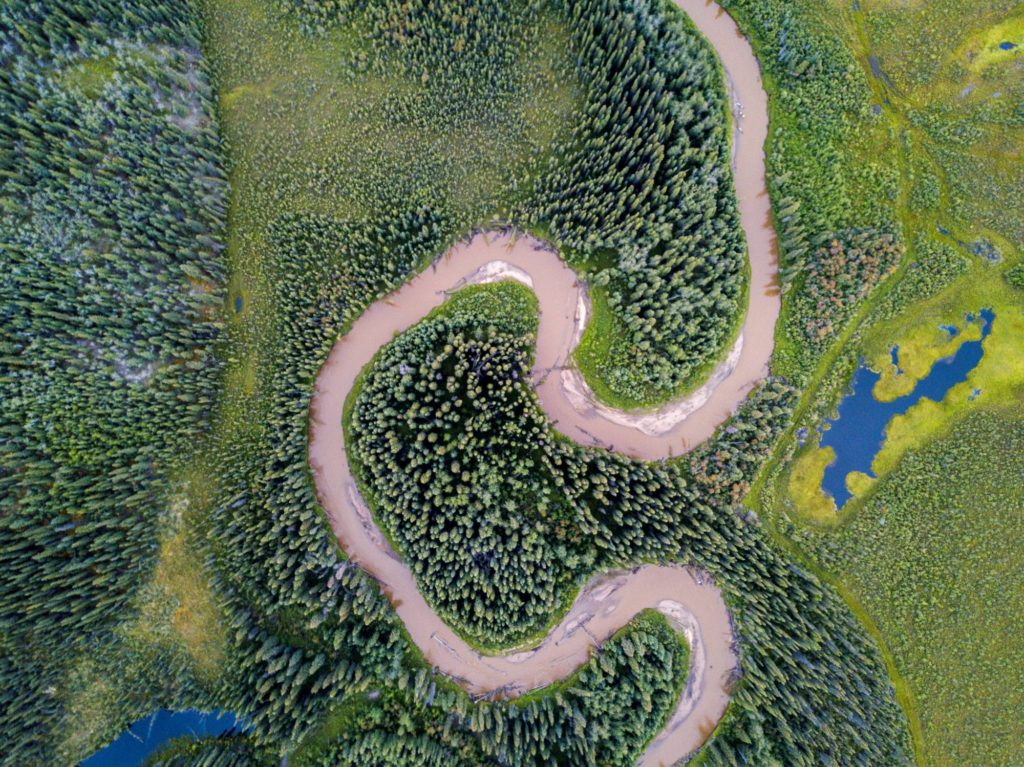
The Water Board is accepting comments as part of the hearing until December 14 and will act on what they heard in the new year. We’re calling on the Board to stop issuing licenses for placer mining where there will be irreparable harm to wetlands until effective and agreed-on wetland protection and reclamation measures are in place.
We’re calling on Yukon Government to accept YESAB and the Water Board’s scientifically sound and culturally grounded recommendations that placer mining should not disturb unmined wetlands. Disappointingly, Yukon Government’s closing remarks at the hearing indicated they weren’t supportive of the Water Board pausing licensing. Of course, it’s not too late for them to change course and show they listened to what was said at the hearing.
Take Action!
Send a letter to the Yukon Water Board at ywb@yukonwaterboard.ca by December 14, 2020. You can ask for a pause on water licensing for placer mining in wetlands until management frameworks are in place to protect ecological and cultural values, set thresholds on disturbance, and develop agreed-on reclamation standards.
For more information about the hearing:
Watch all of the presentations.
Read coverage in the Whitehorse Star.

